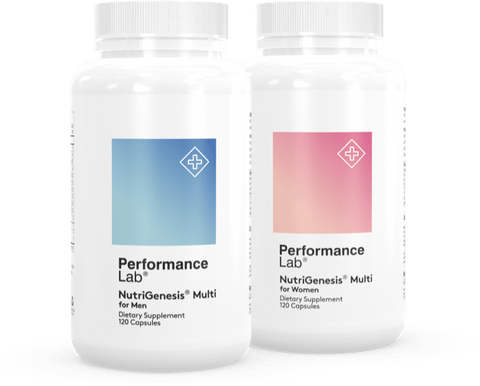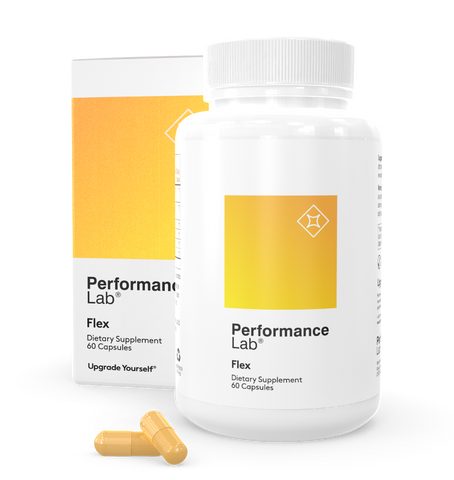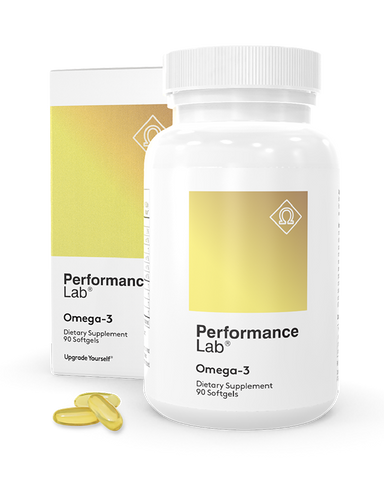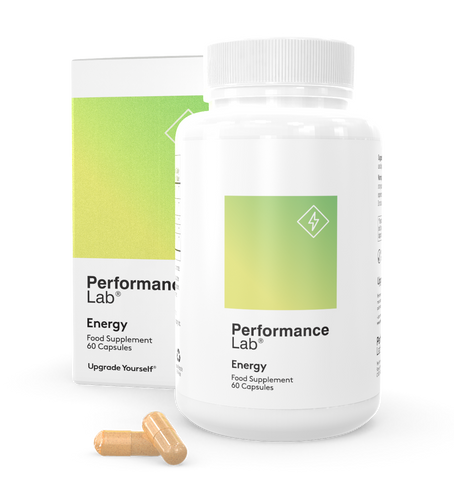Athletes are a different breed of humans. When you constantly need to perform at a high level, every part of your lifestyle needs to be on point—nutrition, workouts, sleep, recovery, and the like.
There is no room for subpar. But part of proper nutrition is getting all of the nutrients your body needs to perform optimally. That can be challenging, but that can be even more challenging for people following a vegan diet. Athletes typically have different nutritional requirements than most people due to the strenuous nature of their training, which means supplementation can come in clutch.
They’re great for priming your body to train and support your workout performance, post-workout recovery, and optimal function daily. If you’re not sure what kind of supplements you need, you’re in the right place.
The article covers what you need to know about supplements for vegan athletes—why they need them, how exercise affects nutritional status, and our top 6 must-have supplements for vegan athletes.
What Kind Of Supplements Do Vegan Athletes Need?
Vegan athletes put their bodies through a lot more stress than the average person, which means that nutritional needs increase due to dietary restrictions and high-intensity training.In general, people on a vegan diet are subject to a greater risk of nutrient deficiencies because of their diet, with some of the most common being 1, 2:
While those are some of the most common nutrients missing from a vegan diet, athletes can benefit from non-nutrient supplementation to enhance athletic performance and recovery. We’ll talk more about those later. While it’s wholly possible to thrive as a vegan athlete, you need to take the right precautions and be mindful of your diet.
Cutting out animal products is easy to do, but you have to consider where you’ll get your B12, zinc, iron, and vitamin D from—they’re all concentrated in animal sources, and a deficiency of any can lead to severe health and performance consequences. Finding the perfect nutritional approach as a vegan athlete will take some trial and error, but pairing a balanced diet with a clean supplement stack can help to maximize energy, performance, and recovery.
Before we dive into the best supplements, let’s first look at some of the most common deficiencies for vegan athletes.
Omega-3s (EPA and DHA)
EPA and DHA are omega-3 essential fatty acids that play essential roles in the body.
Their primary functions are cardiovascular and cognitive health, but they’re also involved in retinal and immune health 3. Research finds they’re also crucial for preventing the development of several chronic diseases.Many studies show the benefit of EPA and DHA for cardiovascular health, which, for athletes, is a must.
Studies indicate that EPA+DHA supplementation at doses of 2-3 grams per day promotes healthy triglyceride status, regulates blood pressure, and improves blood vessel function, especially their integrity and flexibility 4, 5.Omega-3s are also super important for athletes to mitigate the inflammation that can result from intense training. Studies also find that EPA and DHA may potentially influence the metabolic response of muscle to nutrition 6.
Vitamin D
Vitamin D is a must whether you’re an athlete or not.
It plays a critical role in bone health, but for athletes, the extraskeletal role of vitamin D is vital—it’s involved in skeletal muscle growth, immune system, cardiopulmonary function, and inflammatory modulation, all of which play a role in how well an athlete performs and recovers 7. Vitamin D is one of the most prevalent nutrient deficiencies worldwide, with more than 1 billion people not getting enough.
A deficiency is generally the result of cultural and environmental influences, with the most prominent cause being lack of sun exposure. But low vitamin D intake is also due to dietary insufficiency and other factors that interfere with synthesis or absorption. In athletes, the causes of vitamin D deficiency follow much the same pattern, and dark-skinned athletes tend to have it worse 7.
Vitamin B12
Vitamin B12 has several important roles in the, but no other is not notable than its role in hematopoiesis or the formation of red blood cells.
For your body to perform optimally, your organs and tissues require sufficient oxygen. But when a B12 deficiency is present, B12 deficiency anemia can develop, which is a condition whereby your body doesn’t have enough red blood cells.
When red blood cell count is low, oxygen transport is reduced, which impairs the function of all organ systems. If you're dealing with muscle weakness, it could be time to look into your B12 levels.Some research even suggests that athletes with low vitamin B12 levels had a reduced ability to perform high-intensity exercise, whereas higher B12 levels, especially in women, were linked to enhanced performance 8.
Iron
Like vitamin B12, iron plays a critical role in the formation of red blood cells. Its primary role is to transport oxygen in red blood cells and tissues, which it does through hemoglobin.
But despite how important iron is for physiological function, many athletes, especially female endurance athletes, are often diagnosed with iron deficiency. It’s estimated that anywhere between 15 and 35% of female athletes have low iron 9.Iron deficiency, or in severe cases iron deficiency anemia, can interfere with athletic performance because it limits the body’s ability to carry and deliver oxygen to muscles and tissues. As a result, maximum maximal oxygen uptake (VO2max) is stunted, and work capacity declines.
That's why muscle weakness and fatigue are often the first signs. Low iron status has also been linked to higher blood lactate concentrations during exercise 10.
Zinc
The last mineral that’s often deficient in populations following vegan diets is zinc. It’s essential for optimal physiological performance, as it is required for the activity of more than 300 enzymes 11.
But one of the significant roles of zinc in athletic performance is fatigue. It binds to insulin to ensure proper glycogen uptake and storage. It also has a role in strength and muscle mass, immune function, reproductive health, antioxidant defenses, and insulin sensitivity. On top of that, zinc is also required for three critical hormones involved in muscle growth: testosterone, growth hormone (GH) and insulin-like growth factor (IGF-1).
Insufficient zinc levels can result in fatigue, fat gain, loss of body weight, decreased endurance performance, and an increased risk of osteoporosis.
How Does High-Intensity Exercise Affect Nutritional Status?
There’s no denying that high-intensity exercise is hard on the body—and if you’ve ever followed the “no days off” mentality, you can attest to that.
While not giving your body time to recover isn’t doing you any favors, combining sufficient rest with a solid nutritional supplement protocol can maximize your performance and recovery to excel in your abilities as an athlete.But aside from the aches and pains here and there, what happens to our body when we exercise?The effects of micronutrient deficiency—protein, carbs, and fats—have been well-established, and you’ve probably felt the impact yourself. But the performance effects of micronutrient deficiency aren’t as straightforward for athletes.Physically active people typically consume vitamins and minerals consistent with RDIs, but prolonged strenuous exercise can alter intake requirements. When intakes are less than recommendations, you may experience functional impairments.
Severe deficiency of B12 and folate can lead to anemia and reduced endurance performance.
Iron deficiency, with or without anemia, interferes with proper muscle function and limits work capacity. Low magnesium increases the oxygen requirements for submaximal exercise and decreases endurance performance 12. There’s a lot of stress placed on the body’s energy-producing pathways during strenuous exercise, which results in changes to the body's tissues.
As a result, there’s an increase in the loss of nutrients in sweat, urine, and feces during and after heavy activity. There is an additional need for nutrients to repair muscle damage and maintain levels of lean tissue mass in athletes.
For athletes training and competing at a high level, the RDI for most nutrients isn’t sufficient to meet the body’s demands, which can lead to deficiency in the long term.So, instead of talking about all the things vegan athletes need, we’re breaking down the best supplements for vegan athletes that need to be in your stack.
The Top 6 Best Supplements For Vegan Athletes (+ Why You Need Them)
Wondering what the best supplements for vegan athletes are? In this section, we'll provide our top recommendations!
#1 — NutriGenesis Multi

What is it
Performance Lab NutriGenesis Multi is an ultramodern multivitamin that’s unlike any other multis on the market.
Whereas in conventional multis, you’ll find synthetic nutrient forms, fillers, additives, and poor dosing, Multi offers clean, 100% natural nutrition.
NutriGenesis vitamins and minerals are bio-identical nutrients created using a process that mirrors how nutrients are produced in nature.
Because they match the nutrients naturally found in whole foods and are complexed with cofactors, it’s easier for the body to recognize, utilize, and absorb.
Plus, Multi for Men and Multi for Women are calibrated to support the unique needs of men and women for optimal performance and hormone balance.Features:
- 100% DV of 17+ essential vitamins and minerals
- Calibrated to men’s and women’s specific needs
- Encapsulated in NutriCaps®—Prebiotic-infused and vegan-friendly capsules
Why you need it
This guy is your daily driver; it keeps your body running regardless of how intense your training session was or how bad you slept last night.
A multivitamin is a great way to minimize the risk of deficiency and provide your body with the nutrients needed to support growth and recovery after strenuous exercise.
Because exercise can deplete the body of B vitamins, electrolytes, and other critical vitamins and minerals, a multivitamin helps restore nutrient levels.
Since it contains all of the essentials that are typically missing from a vegan diet—vitamin B12, vitamin D, iron, zinc, magnesium, and more— it supports healthy function.
#2 — Flex

What is it
Healthy joints are the core of good performance, and Performance Lab Flex provides the nutrient needed to support healthy, active joints.
Using botanicals like AprèsFlex® Boswellia serrata and CurcuWIN® curcumin, Flex soothes and protects achy, sore joints but also nourishes and lubricates them with Phytodroitin™, NutriGenesis® strontium, OptiMSM® and corn glucosamine. With Flex, you’re getting 100% clean, natural joint relief from nature’s most potent joint-supporting botanicals and science-backed nutrients to target peak flexibility, resilience, and comfort across all activities.Features:
- CurcuWIN® Turmeric (Curcuma longa)
- AprèsFlex® Boswellia serrata (gum resin)
- Glucosamine Sulfate 2KCL
- Phytodroitin™ (mucopolysaccharide extract)
- OptiMSM® (Methylsulfonylmethane )
Why you need it
The impact that an athlete’s body’s joints, muscles, and tendons undergo is huge—and if you want to perform like the best, supporting joint health is non-negotiable.
Compared to the average person, athletes have a substantially higher risk of sustaining joint injuries, associated with joint instability and degeneration of articular cartilage This can predispose athletes to a higher risk of arthritis down the road.
That’s why supporting your connective tissues with appropriate nutrients is key to maintaining health and preventing injury.
#3 — Omega-3

What is it
Fish oils have always been the go-to for omega-3s, but you can kiss the smelly, rancid, contaminated fish oils goodbye and say hello to the newest, most potent omega-3 supplement on the market.
Performance Lab Omega-3 supplies ultra-clean omega-3s derived from their original aquatic source, algae.
Rather than relying on potentially unsafe supplements sourced from seafood, Performance Lab® Omega-3 supplies safe, clean, and sustainable DHA+EPA Omega-3s.
It’s all the benefits of these powerful EFAs without the drawbacks of conventional fish oil.Features:
- Algal oil (from life’s™OMEGA 60) (2,000mg)
- DHA (600mg)
- EPA (300mg)
Why you need it
Inflammation is a normal part of training that is triggered after a strenuous exercise to facilitate damage control (i.e. repair).
During high-intensity endurance exercise, the body generates free radicals as a normal byproduct of metabolism; skeletal muscle requires oxygen to produce energy to power activity.
However, the oxidative nature of endurance training increases free radical production, which triggers an inflammatory response to protect host tissue from damage 13.
But while oxidative stress may cause potentially damaging inflammation, it also plays an essential physiological role in training adaptations. A lack of nutrients needed to dampen the inflammatory response can lead to serious damage over time.Omega-3s are some of the best natural anti-inflammatory compounds for athletes to keep in their supplement stack.
They can decrease the production of molecules and substances linked to inflammation, including eicosanoids and cytokines, and several studies have shown a connection between higher omega-3 intake and less inflammation 14, 15.
#4 — Energy

What is it
Getting through a challenging workout can be particularly hard when you're low on fuel. That’s where having a good energy supplement can come in handy.
Unlike conventional energy supplements that mega-dose caffeine to rev your nervous system, Performance Lab Energy uses science-backed nutrients to supercharge your mitochondria—the powerhouses of your cells.
Featuring MicroActive® Q10, BioPerine®, BioPQQ® and Bio-Enhanced® nutrition technology, Energy optimizes cellular performance without the use of stimulants and synthetic ingredients to provide a surge of natural vitality in both body and mind.
And unlike other energy pills and powders, Energy is clean—no caffeine, no crash, no additives—just pure revitalizing energy.Features:
- Magnesium (as NutriGenesis®)
- Acetyl L-Carnitine (from Acetyl L-Carnitine HCL)
- Microencapsulated Bio-Enhanced® R-Lipoic Acid
- MicroActive® Q10 (Coenzyme Q10)
- BioPQQ® (Pyrroloquinoline quinone )
- BioPerine® Black Pepper Extract (Piper nigrum) (fruit) (95% Piperine)
Why you need it
If you’re looking for a surge of energy to power you through some of the most challenging workouts, every supplement can be a big help.
But most conventional energy pills, powders, and drinks contain loads of synthetic ingredients, excessive doses of caffeine, taurine, and more that can spike your energy, only to be followed up by a major crash.
How can you go wrong when you find a clean energy supplement that supercharges the organs that produce energy? Mitochondria are responsible for generating most of the chemical energy needed to power a cell's biochemical reactions.
So, instead of supplying synthetic energy that leaves you more tired, supply mitochondria with the appropriate fuel to optimize energy metabolism and production.
#5 — Caffeine+

What is it
Performance Lab Caffeine+ is unlike any other energy supplement. Gone are the days of mega-doses of caffeine and the nasty crashes and side effects.
Caffeine+ is smarter and cleaner with natural Caffeine 50 mg + Suntheanine® 100 mg to deliver greater dosing precision and superior performance and stimulation with fewer side effects.
With the addition of NutriGenesis vitamins and minerals and Ajipure® L-Tyrosine, Caffeine+ also helps restore caffeine-depleted brain chemicals to support training intensity and healthy recovery.Features:
- NutriGenesis® Caffeine Balance B-Complex
- Natural Caffeine (from Coffea robusta seeds)
- Suntheanine® L-Theanine
- Ajipure® L-Tyrosine
Why you need it
Regardless of how clean you eat and how well you sleep, sometimes we all need a little energy kick to get through our workout.
But while caffeine has a proven track record for increasing energy and alertness, high doses can leave you feeling jittery, nervous, and anxious, interfering with sleep and recovery.
Related Post: Best Nighttime Supplement for Muscle Growth
So, instead of mega-dosing caffeine to get the job done, supply the body with the proper nutrients to enhance energy while balancing out the hormones most affected by intense training.
That way, you’re getting all-around support. It’s natural, more effective energy to sustain athletic performance.
#6 — Sleep

What is it
If you’ve struggled to fall asleep or wake up drowsy from conventional natural sleep aids, you’re not alone.
Many sleep aids use a single dose of synthetic melatonin, which is a one-way ticket to serious next-day grogginess.
Rather than loading up on artificial sleep aids, Performance Lab Sleep supplies natural low-dose melatonin from CherryPURE® Montmorency Tart Cherry with three forms of magnesium and L-tryptophan.
It’s a safe, non-habit-forming formula that helps you fall asleep faster and wake up fresher. Sleep blends 100% natural, high-grade nutrients designed to calm nerves, soothe muscles, and ease sleep-disrupting stress.Features:
- Magnesium+ (as Magnesium Bisglycinate and Magnesium
- Whole Montmorency Tart Cherry (Prunus cerasus) - fruit (as CherryPURE®)
- L-Tryptophan
Why you need it
Sleep is essential for all athletes. You can train as hard as you want and eat as clean as possible, but if you’re not sleeping enough, you’re not recovering to your full potential.
Sleep isn’t just needed to support the immune system, cardiovascular health, cognitive function, and tissue repair—it’s also required to prevent the risk of medical conditions like type 2 diabetes, high blood pressure, kidney disease, and stroke.
On top of that, poor quality sleep has been shown to affect several aspects of an athlete's performance, including accuracy, fatigue, reaction time, learning and decision making, injury risk, and illness.
Sometimes getting the sleep you need is easier said than done—that’s where something like Performance Lab Sleep comes in handy. It’s a gentle, non-reliant sleep supplement that helps you drift to sleep and awake refreshed with no groggy side effects.
References
- Sakkas H, Bozidis P, Touzios C, et al. Nutritional Status and the Influence of the Vegan Diet on the Gut Microbiota and Human Health. Medicina (Kaunas). 2020;56(2):88.
- Rogerson D. Vegan diets: practical advice for athletes and exercisers. J Int Soc Sports Nutr. 2017;14:36.
- Swanson D, Block R, Mousa SA. Omega-3 fatty acids EPA and DHA: health benefits throughout life. Adv Nutr. 2012;3(1):1-7.
- Limbu R, Cottrell GS, McNeish AJ. Characterisation of the vasodilation effects of DHA and EPA, n-3 PUFAs (fish oils), in rat aorta and mesenteric resistance arteries. PLoS One. 2018;13(2):e0192484.
- Skulas-Ray AC, Wilson PWF, Harris WS, et al. Omega-3 Fatty Acids for the Management of Hypertriglyceridemia: A Science Advisory From the American Heart Association. Circulation. 2019;140(12):e673-e691.
- Thielecke F, Blannin A. Omega-3 Fatty Acids for Sport Performance-Are They Equally Beneficial for Athletes and Amateurs? A Narrative Review. Nutrients. 2020;12(12):3712.
- de la Puente Yagüe M, Collado Yurrita L, Ciudad Cabañas MJ, Cuadrado Cenzual MA. Role of Vitamin D in Athletes and Their Performance: Current Concepts and New Trends. Nutrients. 2020;12(2):579.
- Lukaski HC. Vitamin and mineral status: effects on physical performance. Nutrition. 2004;20(7-8):632-644.
- Sim M, Garvican-Lewis LA, Cox GR, et al. Iron considerations for the athlete: a narrative review. Eur J Appl Physiol. 2019;119(7):1463-1478.
- Beard J, Tobin B. Iron status and exercise. Am J Clin Nutr. 2000;72(2 Suppl):594S-7S.
- Micheletti A, Rossi R, Rufini S. Zinc status in athletes: relation to diet and exercise. Sports Med. 2001;31(8):577-582.
- Pendergast DR, Meksawan K, Limprasertkul A, Fisher NM. Influence of exercise on nutritional requirements. Eur J Appl Physiol. 2011;111(3):379-390.
- Elkington LJ, Gleeson M, Pyne DB, et al. Inflammation and Immune Function: Can Antioxidants Help the Endurance Athlete? In: Lamprecht M, editor. Antioxidants in Sport Nutrition. Boca Raton (FL): CRC Press/Taylor & Francis; 2015. Chapter 11. Available from: https://www.ncbi.nlm.nih.gov/books/NBK299041/
- Calder PC. n-3 polyunsaturated fatty acids, inflammation, and inflammatory diseases. Am J Clin Nutr. 2006;83(6 Suppl):1505S-1519S.
- Li H, Ruan XZ, Powis SH, et al. EPA and DHA reduce LPS-induced inflammation responses in HK-2 cells: evidence for a PPAR-gamma-dependent mechanism. Kidney Int. 2005;67(3):867-874.
- Ivy JL. Regulation of muscle glycogen repletion, muscle protein synthesis and repair following exercise. J Sports Sci Med. 2004;3(3):131-138.












